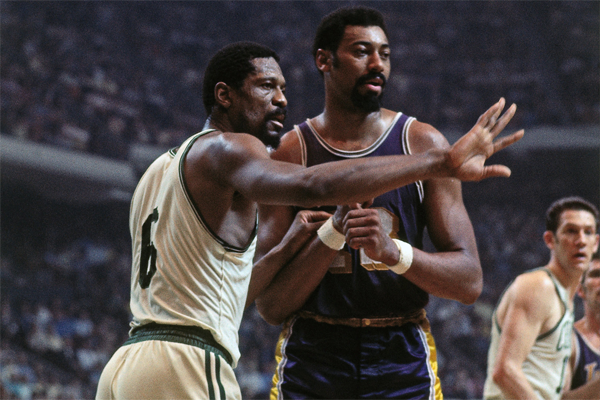
Few rivalries in basketball history match the intensity and respect shared between Wilt Chamberlain and Bill Russell. The two Hall of Fame centers dominated the NBA during the 1960s, engaging in countless battles that defined an era. Despite their on-court competitiveness, they maintained a deep mutual admiration, and one of the most lighthearted debates between them was about who was the greatest rebounder of all time.
Bill Russell once recounted a friendly argument between himself and Chamberlain regarding their rebounding dominance. Russell stated, “Wilt Chamberlain and I are the only players to have grabbed over 20,000 rebounds in our careers, and no one else even came close. So I told him, ‘You’re the best rebounder. I averaged 22.5 rebounds over 13 years, and you averaged 22.9 over 14 years, so that makes you the greatest rebounder in history.’”
By pure statistical averages, Chamberlain edged out Russell, securing an astonishing 22.9 rebounds per game (RPG) compared to Russell’s 22.5 RPG. Wilt also holds the single-season rebounding record, grabbing 27.2 RPG in the 1960-61 season. Given these numbers, Russell was willing to acknowledge Wilt as the best rebounder in history.
However, Chamberlain had a counterargument. He responded, “I don’t agree with you, Bill. In the playoffs, you averaged 24.9 rebounds, while I averaged 24.5. And we all know that playoff games are the toughest, so that makes you the best rebounder!”
This was a rare moment where Chamberlain, known for his statistical dominance, gave Russell the edge in rebounding. Russell’s playoff rebounding numbers were indeed superior, as he stepped up his game when it mattered most, anchoring the Celtics’ defense and leading them to 11 NBA championships. In contrast, Chamberlain’s numbers, while incredible, didn’t translate to the same level of team success.
Different Styles, Same Greatness
While Wilt Chamberlain was a physical force, standing at 7’1″ with unmatched strength and agility, Russell was a master of positioning, timing, and defensive intelligence. Wilt dominated individual statistics, setting records that may never be broken, but Russell’s ability to rebound and lead his team to victories made him the ultimate winner.
Ultimately, their friendly argument was a testament to their greatness. The fact that they could debate who was the better rebounder—when both averaged over 20 rebounds per game for their careers—speaks volumes about their impact. While numbers may suggest Wilt was the better rebounder, Russell’s playoff performances and leadership make the debate a matter of perspective.
In the end, the only thing clear is that basketball may never see two rebounding giants like Wilt and Russell again.

Leave a Reply